The Lucifer Effect
Understanding How Good People Do Bad Things
How Persons Of Direct Influence Can Appeal To The Better Angels Of Our Nature
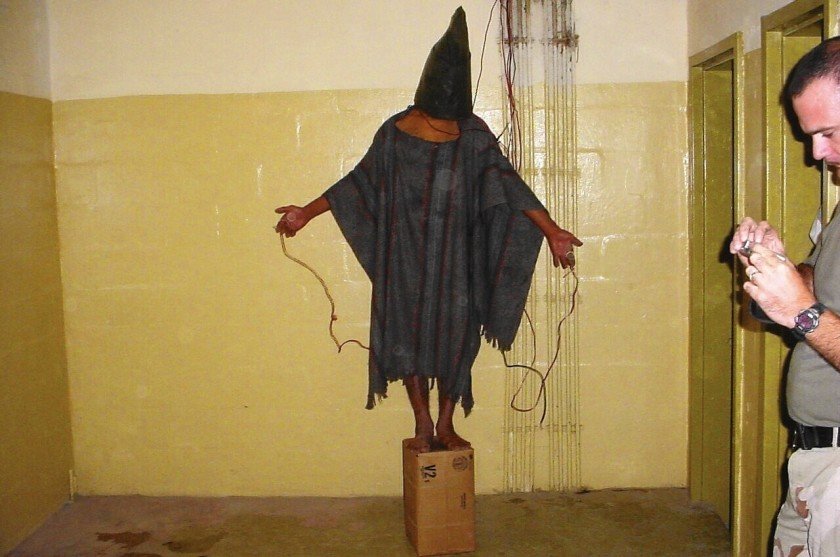
Introducing - The Lucifer Effect
"The Lucifer Effect: Understanding How Good People Turn Evil" published in 2007 [Random House] is Professor Philip Zimbardo's first public detailed written account of what took place in his career making and now infamous Stanford Prison Experiment [SPE] 1971.
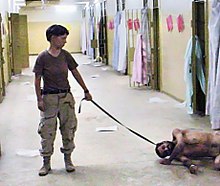
The book was written in part to offer insight and explanation of the torture and abuse of prisoners by US service personnel at the notorious Abu Ghraib prison in the 2003.
In his official website of The Lucifer Effect he describes how he summarises more that 30 years of research on:
"...factors that can create a 'perfect storm' which leads good people to engage in evil actions. This transformation of human character is what I call the 'Lucifer Effect,' named after God's favorite angel, Lucifer, who fell from grace and ultimately became Satan."
To summarise Zimbardos's position, ordinary people, who he labels as "good" people, can be so influenced by situational factors that they can change and become "bad" people.
In the book he also trawls through the landscape of various other studies on de-individuation and notably the equally famous Millgram Experiment focusing on obedience to authority figures to garner support for his position.
He challenges the standard official line that it is just a few "bad apples" and reframes the situational factors as the "bad barrel". Thus the transmutation of previously "good" people into "bad" people is entirely attributable to situational factors the blame for which sits squarely with those responsible for creating and /or allowing those conditions to proliferate.
Zimbardo then adds a further dimension that he refers as the "barrel makers" those in positions of power who created the conditions that gave rise to these situational factors.
He draws parallels between his Stanford Prison study and the Abu Ghraib scandal in 2 areas:
- Firstly he talks about the effect of the powerful situational factors [the "bad barrels" ] in each case; and
- Secondly, and having at last admitted his own culpability for having become a participant in his own study and thus blinded to the effects on the student participants in his care, he draws an analogous connection between himself as "barrel maker" of the SPE and the Bush administration and the Rumsfeld led military as the "barrel makers" of the Abu Ghraib catastrophe.
This all leads Zimbardo to positing a triangular model comprising the individual, the situation and those responsible for creating and/or allowing the situation to develop.
"The seeds for the flowers of evil that blossomed in that dark dungeon of Abu Ghraib were planted by the Bush administration in its triangular framing of national security threats, citizen fear and vulnerability, and interrogation/torture to win the war on terror."
The Lucifer Effect - My Analysis Of Zimbardo's Conclusions
Leaving aside the assumption that people can be intrinsically "good" or "bad" and accepting the idea that situational factors can have an impact on a persons ethical choices, and also accepting the role of those who he frames as "barrel makers", I believe that his analysis and conclusions are incomplete.
Having undertaken a fairly wide literature review of what Zimbardo is on record as having said, and informed commentary and professional analysis of SPE together with his subsequent revisiting of this in The Lucifer Effect, my personal view is that:
- The SPE is not a scientifically valid social-psychology experiment and it neither validates nor proves Zimbardo's original claim of the capacity and capability of situational factors to change a previously good person into a bad person.
- What I believe it does show is three key things:
[1] The impact of a person of direct influence [PODI]
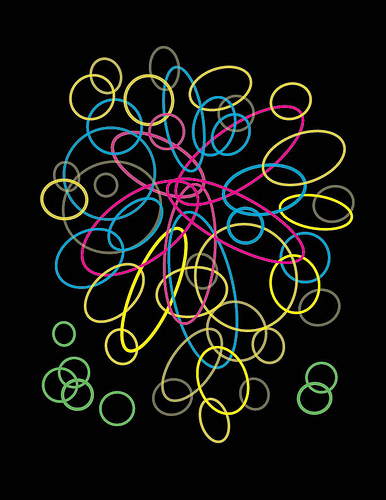
A PODI can have an impact of the behaviour of an individual in ANY circumstances and can nurture/lead/influence an individual to either change or not change their behaviour.
This is especially true in situations where the individual is experiencing sustained influence, pressure and coercion to modify or change their behaviour to align with the requirements of the situation and those who have created the situation [the barrel-makers].
Positions of Formal or Informal Influence
Formal Influence
A PODI can be in a formal position such as a line management/direct report situation or, in a matrix managment situation, in a technical or advisory position of influence.
As lead psychologist and key role player [as prison governor] in SPE Zimbardo was in a powerful position of total influence of ALL aspects of this study. Bluntly, he had a pre-determined idea of the results he wanted and expected to see and devised and manipulated the scenario and participants to get that result.
Furthermore, he had a duty of care to the participants which he
clearly did not exercise during the study and only eventually did so
under pressure/persuasion from a third party [his girl friend who was a
pre-doctoral psychology student at that time].
At Abu Ghraib,
the psychologists exercised considerable formal influence in advising
and suggesting interrogation techniques. Plus of course the officers of
higher rank to the mililary police service personnel, and who were in line
management of them:
"I was instructed by persons in higher rank to 'stand there, hold this
leash, look at the camera', and they took pictures for PsyOps" [Private Lynndie England]
The psychologists and higher rank officers clearly exercised their influence as PODIs in ways that encouraged the bad behaviour and thus were a significant factor in creating the bad behaviour and not stopping it.
Informal Influence
There are innumerable situations in life where people can fulfil the role of PODI in someone else's life in informal ways as relative, friend, former teacher or employer, mentor, influential friend, social group leader etc.
In seeking to understand the individuals's behaviour where powerful negative situational factors are in play we have to look at the informal PODIs in that person's life to understand and gain insight into why they made the life choices and decisions that they did.
Zimbardo talks powerfully and movingly of the early influences on his own life growing up in an environment of poverty, crime and violence. But his analysis omits to mention the impact of PODIs in his life at that time - the educators who took interest and encouraged him, and the PODIs in the lives of his friends who make choices to take up lives of crime and violence.
So on the basis of my analysis of SPE and The Lucifer Effect I have redefined Zimbardo's model as:
[2] Acting as we think we’re expected to act - especially if that expectation comes from above
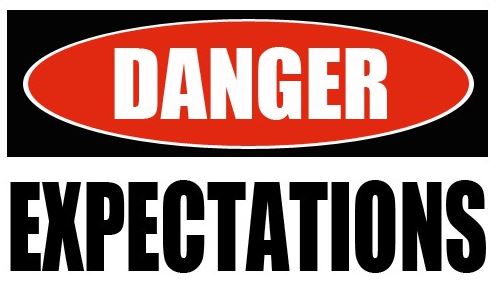
The second lesson of Stanford Prison Experiment isn’t that any random person is capable of descending into sadism and tyranny.
It’s about conforming to expectations and specifically that certain institutions and environments demand those behaviors—and, perhaps, can change them.
[3] PODI's capacity for self-delusion and seeing what they want to see
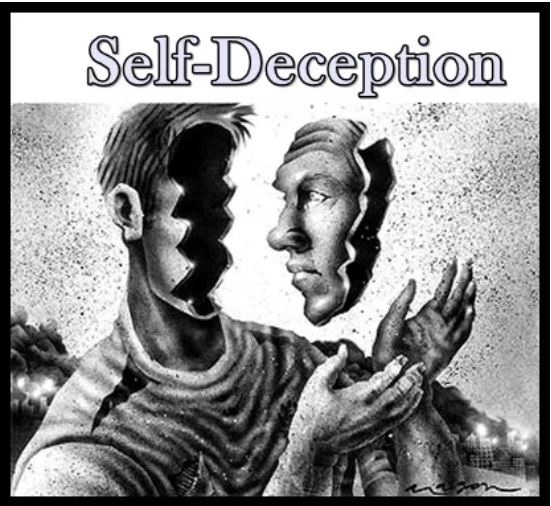
We all have a significant capacity for a lack of self-awareness, our own personal "blind spots" leading to a blindness to not seeing what we don't want to see and thus a propensity to self delusion.
This can be as a result of situational pressures imposed on us, and self-imposed or external expectations that we feel compelled to live up to.
In addition to this we are all subject to a wide range of cognitive biases.
Zimbardo had expectations
In the SPE Zimbardo quite clearly had well defined expectations about what he expected and wanted to see about (a) the corrupting effect of power on prison guards and (b) a validation of his support for situational [rather than dispositional] explanations of why "normal" "good" people can change as a result of situational dynamics and perpetrate evil.
Zimbardo must have known...
He, as a social psychologist and trained in scientific method, must have known that what he conducted was NOT an experiment but an event - a planned and orchestrated event - to act as a demonstration of the validity of his belief.
He must have known that he had not complied with the requirements of a scientific experiment, he must have known that this would have required that he conduct and full analysis of the data derived from his experiment and subject to it peer review before rushing [as he did] into public declarations of what his SPE proved.
A reputation knowingly built on a deeply flawed study
Over the ensuing 30+ years between the SPE and the publication of the The Lucifer Effect he had ample opportunity to publicly acknowledge and revise the public perception of what rapidly became a career defining event both in the realms of academia and in the wider world.
In summary his reputation was made and sustained for the duration of the greater part of what has been an illustrious career on the strength of a deeply flawed and self miss-presented study.
The military PODIs at Abu Ghraib were culpable
In the case of the military line managers of those involved at ground level in the Abu Ghraib tragedy, and in the case of the psychologists [PsycOps] coaching them, it would seem that their belief in the "greater good" of the "war on terror" blinded them to looking closely, and in person, at what was taking place on the ground.
In my view when this happens with PODIs in a position of formal influence they have not exercised their duty of care [by any criteria] and share a significant level of accountability and culpability.
The Lucifer Effect - Recommended Further Reading
Zimbardo on ‘The Lucifer Effect’ presenting to the US Association For Psychological Science 18th Convention 1st Aug 2006
I thoroughly commend each of the following 2 articles which offer a professional critique and analysis of "The Lucifer Effect":
Book review by Joachim I. Krueger, Department of Psychology, Brown University, Rhode island, US
Lucifer’s Last Laugh: The Devil Is in the Details
Book review by Phil Banyard, Associate Senior Lecturer in Psychology, Nottingham Trent University, UK
Tyranny And The Tyrant
Further reading on this site, linked articles:
LATEST ARTICLES
Living in Survival Mode Without Surrendering Mental Authority
Living in Survival Mode Without Surrendering Mental Authority
 Clear Thinking When You’re Just Trying to Stay Afloat. Many people today are overwhelmed because they are living in survival mode - not temporarily, but as a persistent condition of life. For many, th…
Clear Thinking When You’re Just Trying to Stay Afloat. Many people today are overwhelmed because they are living in survival mode - not temporarily, but as a persistent condition of life. For many, th…Manifestation Without Magic: A Practical Model
 Manifestation without magic is not a softer or more intellectual version of popular manifestation culture. It is a different model altogether. Popular manifestation teachings tend to frame reality as…
Manifestation without magic is not a softer or more intellectual version of popular manifestation culture. It is a different model altogether. Popular manifestation teachings tend to frame reality as…Staying Committed When You Can't See Progress - The Psychology of Grit
 Uncertainty Is Not The Absence Of Progress, Only The Absence Of Reassurance. One of the most destabilising experiences in modern life is not failure, but uncertainty and staying committed when you can…
Uncertainty Is Not The Absence Of Progress, Only The Absence Of Reassurance. One of the most destabilising experiences in modern life is not failure, but uncertainty and staying committed when you can…The Battle For Your Mind - How To Win Inner Freedom In A Digital Age Of Distraction
 From External Events to Inner Events. We often think of “events” as things that happen out there: the traffic jam, the rude comment, the delayed email reply. But what truly shapes our experience is wh…
From External Events to Inner Events. We often think of “events” as things that happen out there: the traffic jam, the rude comment, the delayed email reply. But what truly shapes our experience is wh…How to See Your Thoughts Without Becoming the Story
 A Practical Guide to Thought-Awareness. You can spend your life inside the stories of your mind without ever learning how to see your thoughts clearly and objectively. Most of the stuff we tell oursel…
A Practical Guide to Thought-Awareness. You can spend your life inside the stories of your mind without ever learning how to see your thoughts clearly and objectively. Most of the stuff we tell oursel…The Collison Decision Matrix - A Simple Framework for Better Choices
 The Collison Decision Matrix Is A Practical Everyday Thinking Tool. Most of us spend a surprising amount of time worrying about decisions. From small ones such as what to wear, what to eat, what to te…
The Collison Decision Matrix Is A Practical Everyday Thinking Tool. Most of us spend a surprising amount of time worrying about decisions. From small ones such as what to wear, what to eat, what to te…The Power Of Asking The Right Question
 The Power Of Asking The Right Question Lies In The Quest For Insight. To experience the power of asking the right question you must develop the practice of asking questions. The best way to improve th…
The Power Of Asking The Right Question Lies In The Quest For Insight. To experience the power of asking the right question you must develop the practice of asking questions. The best way to improve th…Site Pathways
 Here is a site pathway to help new readers of Zen-Tools navigate the material on this site. Each pathway is based around one of the many key themes covered on this site and contain a 150 word introduc…
Here is a site pathway to help new readers of Zen-Tools navigate the material on this site. Each pathway is based around one of the many key themes covered on this site and contain a 150 word introduc…How To Live With Contradiction - Beyond Thought Let Stillness Speak
 A major impact on so many peoples' lives is the situational contradiction of unfilled realistic expectations. So where does all this leave us? Well here we are, with mental equipment that is more lim…
A major impact on so many peoples' lives is the situational contradiction of unfilled realistic expectations. So where does all this leave us? Well here we are, with mental equipment that is more lim…How To Trust The Process Of Mindfulness - Right Now
 In mindfulness, the process isn’t some distant goal — it's what is happening right now. When we talk about how to trust the process of mindfulness the credibility of the process is heavily dependent…
In mindfulness, the process isn’t some distant goal — it's what is happening right now. When we talk about how to trust the process of mindfulness the credibility of the process is heavily dependent…Inner Mastery For Outer Impact - Mental Clarity For Effective Action
 Insights only matter if they translate into consistent action. In a world crowded with quick fixes and motivational soundbites, the theme “Inner Mastery for Outer Impact” calls us to something more e…
Insights only matter if they translate into consistent action. In a world crowded with quick fixes and motivational soundbites, the theme “Inner Mastery for Outer Impact” calls us to something more e…